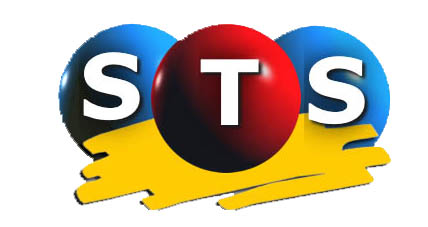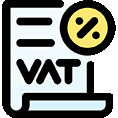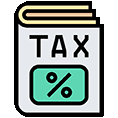Services
Every individual (almost) is subject to Income Tax. Most employed people have their tax deducted by their employer at source. This is called Pay As You Earn. If you are self-employed, in partnership, have property income or organise your income so that you receive some income without tax being deducted at source, e.g. director receiving dividends, you will need to report your income and allowances to HMRC. This is usually done with a self-assessment tax return. We will complete your personal Income Tax or Partnership return from around £70 + VAT and during the process will attempt to identify any areas where you can legally reduce your tax liability.
CORPORATION TAX
All companies need to report their income to HMRC each year by completing a Corporation Tax Self-Assessment return called a CT600. The return must be submitted to HMRC within 12 months of your company's year end, although any tax due must be paid within 9 months of the year end - so effectively you should submit your CT600 by the 9 months deadline. If we prepare your company accounts we will usually include completion of this return within that service, however we can complete your CT600 from your own supplied accounts at a cost from £50 + VAT.
Our Corporation Tax service is not simply about completing your statutory obligations, we can review your accounting practices to look for areas where you can legally reduce your Corporation Tax bill. For this service we charge from £150 + VAT - unless we cannot save you at least this much, in which case we provide the service for free.
VALUE ADDED TAX (VAT)
VAT is a tax which must be added to the cost of certain goods and services. These goods and services are known as 'taxable supplies'. As a business you do not automatically have to add VAT to your sales, nor can you automatically reclaim VAT paid to suppliers, you must only do this after you have registered with HMRC. Registration is only compulsory if the total, before VAT is added, of your taxable goods and services is above the registration threshold or is likely to exceed the threshold within the next 30 days. The current threshold for VAT registration is £85,000, if your net taxable supplies are below this limit you can, if you wish, choose to register for VAT, this is known as voluntary registration. There are many reasons why you may want to register voluntarily, there are also many reasons why you should not. We will be happy to discuss your business circumstances and advise as to the pros and cons of voluntary registration. If you decide you would like to register voluntarily or fall into the compulsory bracket we will be happy to complete the registration process on your behalf for a cost starting at around £50 + VAT.
VAT can be a complicated tax to administer, you will see reference to 'taxable' supplies above, not all goods or services you sell might be 'taxable'. Certain goods and services are exempt from VAT or outside of its scope. There is not always any rhyme or reason as to what is or isn't a 'taxable supply', some examples of exempt supplies are insurance, postage and certain foods. Similarly, not all goods or service you purchase will have VAT which you can reclaim. You must submit a VAT return to HMRC periodically, usually quarterly, which details all VAT collected (on your sales) and all allowable VAT paid (on your purchases and expenses). The difference between the two is then payable or reclaimable to or from HMRC.
If we complete your bookkeeping as part of an agreed package, we will prepare your VAT return for submission and submit to HMRC (after your approval) on your behalf. If you complete your own bookkeeping, then you are part way to being able to complete and submit your own VAT returns. However as we mentioned above, for the uninitiated, administering VAT can be a complicated process and if you would prefer we complete your return for you we can do this for a cost starting at £70 + VAT per return. If you are more confident but would like additional peace of mind, you can complete your return and we will review it for any obvious errors before your submission.
PAYE AND NATIONAL INSURANCE
If you have employees then you will need to operate a Pay As You Earn (PAYE) scheme. If you are a sole trader or partnership you are not 'an employee', but if you take on staff then these will be employees. If you run a company, even with just one director, and pay yourself a salary you as a director will be classed as an employee A PAYE scheme is, amongst other things, a method of deducting Income Tax and National Insurance from your employee before you pay them their net wages or salary. You must then pay the Income Tax and NIC deducted to HMRC. As part of this process you must submit monthly returns to HMRC detailing your payments and deductions and also supply a payslip to each employee. Admittedly, much of this process can be managed by using suitable payroll software. If you would like a recommendation or review to choose the best software to use for your circumstances, then contact us to arrange. Alternatively you can use our services to do all of this for you, we will register your payroll scheme if required and administer your payroll scheme on a weekly or monthly basis (dependant on how often you pay your employees), submitting the required information to HMRC, providing payroll summaries for you and payslips for your employees. The cost of our payroll service is directly linked to the number of employees on your payroll and costs begin at £30 + VAT per month.
When you decide to take on employees you will also have other obligations, firstly in almost all circumstances you will also need to set up and administer an 'auto enrolment pension scheme'. As an employer you have to offer access to a pension scheme for your employees and your business is legally required to make payments, along with a deduction from your employee, into the scheme (unless your employee chooses to opt out or is not eligible to join the scheme) each payroll period. We can advise on a suitable basic scheme for you to set up if required. The payroll deductions and reporting, for a basic scheme, are included within our weekly or monthly payroll service.
Finally, although you should probably consider this first; when you take on employees you must provide them with a contract or 'statement of terms and conditions' which includes for example working hours, holiday entitlement and rates of pay - usually but not always, before they agree to become an employee. You will also need to provide access to various business policies, e.g. a grievance policy - the process should they have a work related grievance. We can provide standard templates which you can tailor to your specific circumstances or we can, by working with you, provide the necessary completed documents.
CAPITAL GAINS TAX
Capital Gains Tax is a tax which may become payable when you sell certain assets. This is not limited to businesses, as an individual you could also be liable to CGT. Some assets are exempt from the tax, e.g. selling your own residential property (also known as your principal private residence), i.e. where you live. Some other assets will be liable to CGT, e.g. selling a second home where you do not live full time, an old oil painting you find in the loft or shares in the company you own. As with a lot of areas of tax, there are specific exemptions and allowances which will help to reduce your liability; there are also pitfalls, which may lead to you paying unnecessary additional tax, to avoid. If you are considering selling any assets, before doing so it would be prudent to obtain advice to ensure you do not fall foul of any pitfalls and ensure you obtain all of the available allowances and reliefs. Feel free to contact us for an informal chat if you are considering the sale of a possible chargeable asset.
OTHER TAXES
Other taxes which you may need to consider are Inheritance Tax, Stamp Duty Land Tax, Insurance Premium Tax and Excise Duty.
Inheritance Tax is not just a 'tax on death', there are certain gifts from your capital which could be classed as a 'chargeable lifetime transfer'. Of all the taxes, Inheritance Tax is perhaps the one where advanced planning can reap the most benefits. We can advise on some simple planning areas, although it is a complex area - especially for larger estates. We are happy to have an informal conversation regarding your potential inheritance tax liability or mitigation of the liability although we may deem it necessary to refer you to a specialist.
Other taxes you may come across are Stamp Duty Land Tax if you are buying or selling property or land, Insurance Premium Tax, although there is not a lot you can do about this tax - unless you are an Insurance Company and Excise Duty which is generally restricted to energy, alcohol and tobacco products.
The above is a rough guide to our services, we will tailor your package to exactly meet your requirements.






